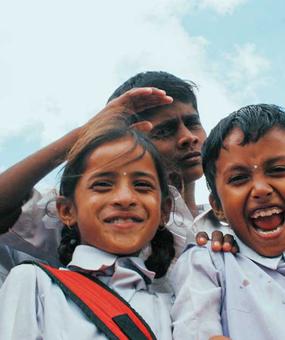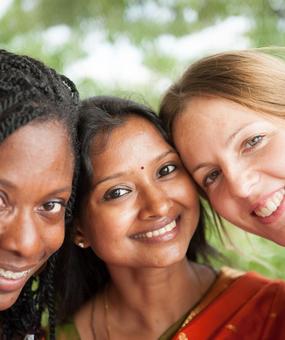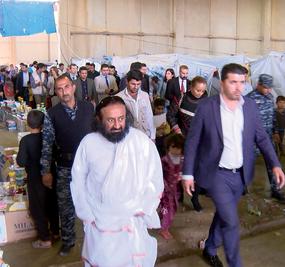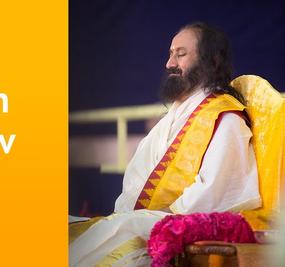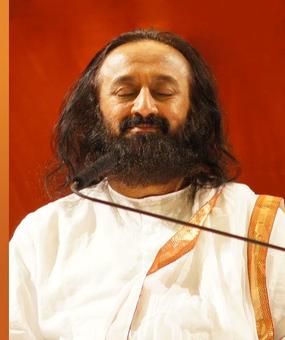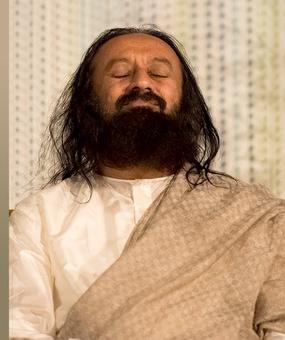In the quest to combat terrorism, Gurudev Sri Sri Ravi Shankar advocates a powerful yet simple solution: multicultural education that fosters the recognition of shared values above religious affiliations. He champions the idea that the key to interfaith harmony and the reduction of terrorism lies in a form of education that encourages pluralism.
Right education is that which creates a reverence for diversity in nature and a sense of belonging with the whole world.
– Gurudev Sri Sri Ravi Shankar
Humanity above Religion
Placing human values above religious doctrine and promoting the interconnectedness of humanity is key to peace and can be achieved by a pluralistic educational system.
A multicultural education, as envisioned by Gurudev, is one that cultivates respect for other religions, allowing children to recognize the common humanity shared with believers of different faiths and understand that truth transcends individual religious perspectives.
Gurudev emphasizes that a child’s education should respect the diversity of cultures and encourage them to recognize the contributions, histories, traditions, languages, and perspectives of various cultural groups. Education should promote respect and empathy towards religious differences.
The only way to get rid of fanaticism in the world is through education that is broad-based, multicultural, and multi-religious so that a child growing up does not think that only the Bible or only the Koran holds the truth.
– Gurudev Sri Sri Ravi Shankar
He believes that when multicultural education permeates societies, particularly among the youth and religious leaders, future global harmony is possible.
Bridging Communal Divides with Dialogue
From Iraq to Pakistan, China to Canada, America, the African continent, and Europe, Gurudev has united individuals from 180 countries in a spirit of altruism and service. Gurudev Sri Sri Ravi Shankar actively advocates for individuals from diverse religious and cultural backgrounds to unite in seeking solutions for global peace. He has addressed major conferences and symposiums worldwide, highlighting the significance of collaborative efforts for peace.
Gurudev actively spreads his message of multicultural education worldwide, addressing diverse forums such as the 29th National Meeting of the Jamiat Ulema-e-Hind and the 3rd World Congress of Rabbis and Imams for Peace in Europe. His influence extends not only to religious leaders, but also to decision-makers, academicians, and the common man.
While addressing the Parliament of World Religions 2009 at Melbourne, Australia he stressed the importance of faith and faith-based organizations in transforming society. He stated that there is no threat to any tradition or culture if everyone is uplifted in human values and united in the communion of One, which resides in the heart of each and every one of us.
At the Peace and Reconciliation in South Asia – Challenges and Opportunities conference, in Oslo in April, 2008, he again stressed that developing a cosmic vision – a broader vision of a problem, that invariably comes from a proactive effort to embrace multicultural education and pluralism is key to re-look at intractable problems objectively.
For the various talks and symposia where Gurudev has addressed communal and other pressing social issues, please click here.
From Dialogue to Action
Beyond theoretical advocacy, Gurudev’s practical initiatives exemplify his commitment to bridging communal divides and providing relief globally. For example, Gurudev’s emphasis on helping people irrespective of their religious affiliation, has helped dissipate long-standing Hindu-Muslim misunderstanding among many. He has consistently directed The Art of Living volunteers to extend assistance and facilitate relief operations in regions marked by communal tensions.
When an earthquake struck parts of Pakistan and Kashmir in 2005, Gurudev mobilized volunteers from India, the majority of whom were Hindu, to provide relief aid in Pakistan. Additionally, Hindu teachers of The Art of Living travelled to Iraq to initiate trauma relief operations and teach stress-elimination breath techniques. During the Godhra riots in Gujarat in 2002, he directly addressed an angry crowd of Muslims and Hindus. His words defused the tension between these two groups on the brink of attacking each other, showcasing the power of dialogue.
In his visit to Iraq in 2007, Gurudev encountered a village where Shias had displaced 8,000 Sunni families. He organized a meeting with Ulemas and significant authorities of the Shia community, and conveyed, “Both Shias and Sunnis are like the two eyes of Islam. Both eyes have only one vision; they can see the same view. Therefore, we have to stay united.” His message resonated with the authorities, leading to a positive response as people welcomed the returning families, who began residing in the village.
Broadening Self-Identity
In his public addresses, Gurudev urges people to broaden their identity beyond religion to see their common humanity. He says: “The present crisis is basically one of identification: limited and fragmented identification leads to hatred, violence, and war. People usually identify themselves with their profession, religion, race, culture, nationality, language, region or sex. Many are prepared to go to any lengths to protect this identity, even giving up their lives in the process. We need to bring about an understanding in all people that they are, firstly, part of the universal spirit, and, secondly, human beings.”
The Art of Living organized a special month-long program at the international center headquartered in Bangalore; this comprised Israelis, Iranians, Jordanians, Bahrainis, Lebanese, Omanis, and Saudi Arabians. When people come together in an environment of unity and affection, preconceived notions fade away. “The program has brought us so close that I can’t believe that Arabs and Israelis don’t see eye-to-eye back home,” happily quipped Yoav Yenon from Israel at The Art of Living International Centre, India.
Similarly, looking beyond limited identity inspired Indians of different castes and classes to collaborate, regardless of historical conflicts – villages in India have witnessed transformation when Hindus joined hands in community-building efforts. Hundreds of Hindus adopted Gurudev’s 7-point action plan at the Truth & Reconciliation Conference in March 2007.
Gurudev’s influence extends to uniting leaders from the Vedanta and Buddhist faiths to collaborate on joint action for global peace at the ‘Vedanta-Buddhism conference’ in February 2008, as well as rallying Hindu leaders for public awareness on HIV/AIDS.
The Common Thread that Binds All
How does Gurudev reach out to people of such different mindsets? In reaching people with diverse perspectives, Gurudev’s approach has earned admiration from individuals like Prof. Gesine Schwan, a candidate for the 2009 German presidential elections and Dean of Humboldt-Viadrina School of Governance, Berlin. She highlighted how Gurudev’s gentle resoluteness, serene dynamism, unwavering concentration, and incorruptible kindness help individuals understand that contributing to peace involves overcoming their internal fears and prejudices against others. This recognition was voiced during the first Culture in Balance award ceremony, 2009, where Gurudev was honored for his contribution to promoting intercultural dialogue. This simple approach has effectively resonated with people of varied backgrounds.
In conclusion, embracing a multicultural education and the willingness to prioritize the shared value of humanity above the identities of religion, will help us appreciate both the interconnectedness of the world and the diverse perspectives that shape it. This is a sustainable solution to prejudice. Gurudev strongly advocates that spirituality, rooted in the core teachings of every religion—universal brotherhood and love—serves as a powerful instrument for building lasting interfaith harmony.
Read More : Remedy for Terrorism: A Comprehensive Approach by Gurudev Sri Sri Ravi Shankar
Through The Master’s Eyes: Francisco Moreno Ocampo
Peace, Prosperity and Happiness Go Hand In Hand: Sri Sri Ravi Shankar
The Common Man Will Need to Participate in the Millennium Development Goals
Those Who Create Wealth Can Help Eliminate Poverty: Gurudev
The World Has Witnessed So Much Chaos; Now Let’s Focus on One Conductor – GOD: Sri Sri
Words from the Peace Delegation of the FARC-EP to Sri Sri Ravi Shankar





